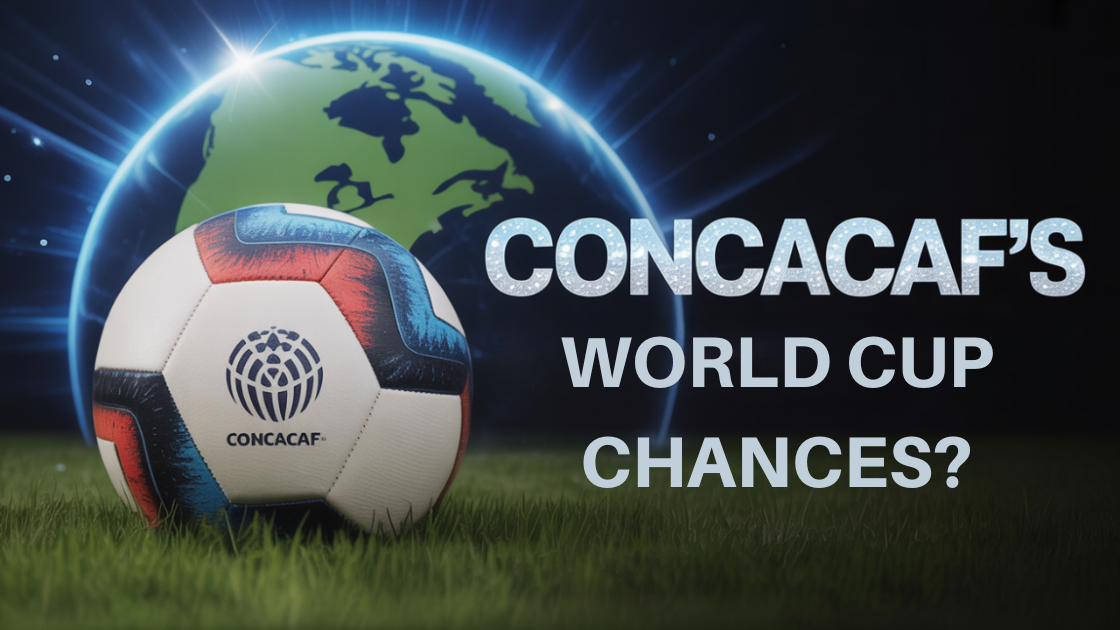Despite holding the majority of member nations in CONCACAF, the Caribbean remains marginalized in regional football politics. Of the 41 associations, 31 represent island nations—numerical strength that should ensure dominance. Yet in reality, the Caribbean has little leverage, overshadowed financially and politically by the “big three”: the United States, Mexico, and now Canada.
Strength in Numbers, Weak in Clout
Jamaica, Trinidad & Tobago, Haiti, and dozens of smaller federations, from St. Lucia to Montserrat, form a large and diverse football community. Collectively, they should hold political sway. But the decision-making power remains anchored to the north.
The United States has hosted or co-hosted every edition of the Gold Cup since 1991—18 tournaments through 2025. Hosting rights bring revenue, visibility, and influence, yet none of those benefits have flowed to the Caribbean. Canada’s role as a co-host of the 2026 FIFA World Cup alongside the U.S. and Mexico underscores the imbalance of power in the region.
Why the Caribbean Falls Short
1. Financial Disadvantage
Football economics drive influence, and the contrast is stark. U.S. Soccer reported revenues exceeding $119 million in 2022 and projects steady growth, boosted by events such as the 2025 FIFA Club World Cup and the 2026 World Cup. Liga MX, already one of the wealthiest leagues in the Americas, generates hundreds of millions annually, with estimates suggesting revenues may push toward $1 billion by the middle of the decade.
Caribbean domestic leagues, by contrast, operate on much smaller scales. Many rely heavily on government funding and FIFA grants, with limited commercial sponsorships. Under FIFA’s Forward 3.0 program (2023–2026), each member association is eligible for development funds, but the exact amounts vary depending on project proposals. Smaller associations often struggle to access the same scale of resources as larger federations.
2. Disunity in the CFU
The Caribbean Football Union (CFU) represents the largest bloc of votes but has long been weakened by rivalries and leadership disputes. The 2011 corruption scandal involving Trinidad’s Jack Warner, then CONCACAF president, severely damaged the region’s credibility. Attempts at rebuilding unity continue, but Caribbean nations have yet to consistently vote or negotiate as a united bloc.
3. Limited Representation
Leadership within CONCACAF reflects the imbalance. The current president, Victor Montagliani (Canada), and general secretary, Philippe Moggio (U.S./Honduran heritage), both come from outside the Caribbean. Key commercial and governance posts also tend to favor North American figures. Without credible Caribbean representation in top roles, regional influence remains muted.
4. Tournament Bias
Qualification structures consistently favor the U.S., Mexico, and Canada, who receive automatic entry into major competitions. Caribbean teams must navigate multiple qualifying rounds, draining resources before even reaching group stages. Hosting opportunities are scarce, and no Caribbean nation has ever hosted a Gold Cup final, keeping revenue and prestige concentrated elsewhere.
The Price of Marginalization
This imbalance shapes player development. Talented Caribbean footballers often leave early in search of opportunity abroad. Jamaica’s Leon Bailey, for example, only flourished after moving to Europe as a teenager. Many others disappear from the talent pool altogether due to weak domestic systems and limited scouting networks.
Programs like the CONCACAF Nations League and FIFA development grants have provided some benefits, but the improvements remain modest. Without systemic reform, Caribbean football risks being locked into the role of feeder rather than competitor.
What Must Change
Act as a Collective Bloc
With 31 associations, the Caribbean could wield enormous influence if it acted in unity. Coordinated voting and negotiation are essential to secure fairer hosting rights, transparent funding, and stronger policy influence.
Invest in Credible Leaders
The region must develop ethical, professional administrators who can represent Caribbean interests in CONCACAF and FIFA. Restoring credibility is key to regaining power.
Strengthen Development Pathways
Pooling resources to create regional academies, youth leagues, and stronger club structures would help keep talent within the region and build sustainable football cultures.
Demand Structural Reform
Reforms should target fairer qualification formats, shared hosting opportunities, and more transparent allocation of development funds.
Raise Coaching Standards
Investing in coaching education, mentorship, and international exchanges is vital. Better coaches mean better players, smarter tactics, and long-term growth.
Conclusion
The Caribbean has the numbers. But numbers alone cannot guarantee influence without unity, investment, and visionary leadership. Unless regional federations push for systemic reform, they will remain passengers while the U.S., Mexico, and Canada set the agenda.
Caribbean football can no longer afford to be the forgotten majority. With shared willpower and strategic reform, it can become an equal partner in shaping the future of CONCACAF—and global football.







